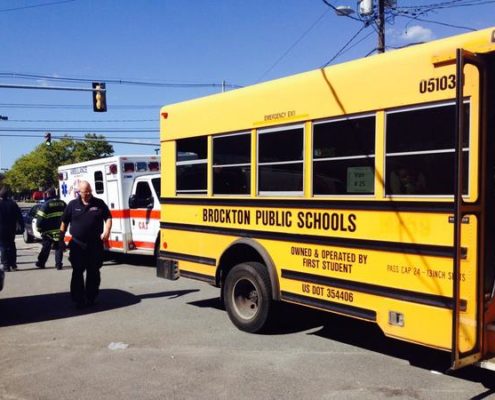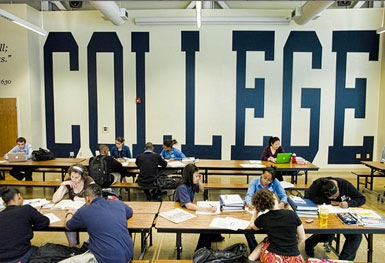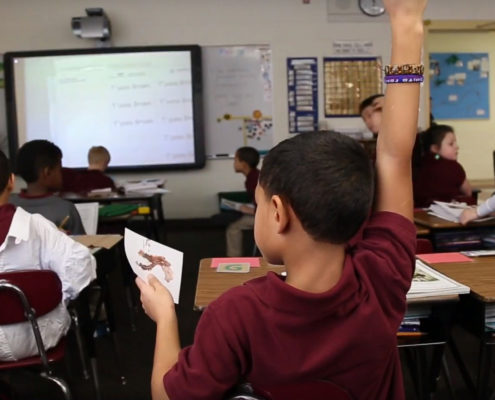
Poll Finds Charter Schools Widely and Broadly Popular in Massachusetts
More than six years after the failure of a statewide ballot initiative that would have increased the number of charter public schools in Massachusetts, a poll shows that 62 percent either strongly or somewhat favor them, with only 16 percent opposed.

Room to Grow: Study Identifies Opportunity for New Charter Schools in State’s Gateway Cities
0 Comments
/
The Commonwealth’s 26 Gateway Cities represent a strong opportunity for the establishment of new charters and/or expansion of existing schools, according to our new study.

An Analysis of How Massachusetts’ ‘Student Growth’ Model Limits Access to Charter Public Schools
The Student Growth Percentile (SGP) the Massachusetts Department of Elementary and Secondary Education (DESE) now uses as 25 percent of the formula for determining school district rankings has a high degree of error. While the SGP may have a role to play as part of discussions around holding districts accountable for performance, it should not be used for high-stakes policy decisions, including which districts are eligible for an increase in the charter public school cap.

Charter School Funding in Massachusetts: A Primer
A new Pioneer Institute study finds that foundation districts are largely unaffected by students who choose to transfer to charter schools.

Remarks at 25th Anniversary Event for the Massachusetts Education Reform Act
Massachusetts Education Reform Act co-author and former Senate President Tom Birmingham praised the historic success that has been achieved since the law was enacted in 1993, but expressed concern that the Commonwealth is veering away from basic principles of the law that produced that success at a State House event marking the 25th anniversary of the Education Reform Act.

Amicus Brief: Jane Doe v. Peyser
Through its public interest law initiative PioneerLegal, Pioneer…

Best Practices in Massachusetts Charter Schools: What We Know Now
This report summarizes the research-based truth about Massachusetts charter public schools, focusing on the ideas that were most prominent in the charter school ballot initiative debate. The data that follow are taken from a series of papers published by Pioneer Institute over the course of 2016. This report illustrates that Massachusetts charter public schools do not drain resources from district schools, they outperform the school districts from which their students come, and have attrition rates that are lower than or equal to those districts.

Attrition, Dropout and Student Mobility in District and Charter Schools: A Demographic Report
This paper uses publicly available DESE data to explore student attrition and other forms of student movement, such as dropouts, within district and charter schools. It is not a direct response to the now dated MTA report, but it does explore the validity of the claim that Massachusetts charter public schools have higher attrition than their district counterparts because these schools “select out” or “push out” weaker students in an effort to produce higher test scores.

Advanced Placement Opportunities and Success in Boston Charter and District Schools: A Demographic Report
This report shows that Boston charter public school students are more likely than their counterparts in non-exam Boston Public Schools (BPS) to take Advanced Placement (AP) courses and tests, and Boston charters have also done a better job of helping traditionally underserved students pass AP tests.

Massachusetts Charter Public Schools Best Practices in Expansion and Replication
This paper considers what the limited expansion of some charter organizations in the Commonwealth has looked like so far, and explores the different legal and policy conditions that enable large charter and educational management organizations to flourish. It does so with an eye to understanding whether Massachusetts might benefit from policy changes that encourage the expansion of operators already in the state and provide incentives for successful outside operators to bring their programs to the Commonwealth. Recommendations include providing pathways for new, innovative providers to enter the state.

Massachusetts Charter Public Schools English Language Learners: Demographic and Achievement Trends
The following paper describes how charter schools in Massachusetts and especially in Boston enroll and serve English language learners. Another report in this series provides similar information about students with disabilities. This paper provides enrollment, attrition, and achievement data for English language learners in charter schools across the Commonwealth, with a concentration on Boston and Gateway Cities such as Lawrence.

Massachusetts Charter Public Schools: Students with Special Educational Needs: Demographic and Achievement Trends
The report finds that charters (especially in Boston) are enrolling an increasing number of special needs students - and those students are performing well compared to their district counterparts. The report also explores attrition rates and facilities funding.

Massachusetts Charter Public Schools: Best Practices from the Phoenix Charter Academies
Phoenix Academies, a network of three Massachusetts public schools, is using strategies such as “relentless support” to help at-risk students not only graduate from high school, but also succeed in college.

Massachusetts Charter Public Schools: Best Practices in Character Education
This report explores two high performing Massachusetts charter public schools—Abby Kelley Foster Charter School in Worcester, MA and the Brooke Charter School Network of Boston, MA—and how they approach character education. This study is part of a series of papers from Pioneer highlighting best practices in the charter sector.

Assessing Charter School Funding in 2016
This study contends that Massachusetts’ charter school funding formula should maintain the shared responsibility of state and local governments to fund education, but improvements could address a number of weaknesses and allow money to more easily follow students.

Massachusetts Charter Public Schools: Best Practices Using Data to Improve Student Achievement in Holyoke
This report profiles the Holyoke Community Charter School (HCCS) in Holyoke, Mass. and the SABIS-designed systems that the school uses; systems that relate to curriculum, assessments, and the gathering of school level data pertaining to both. Drawing upon school- and state-generated data and interviews with HCCS students and faculty, this cases study describes how SABIS’s integrated approach to curriculum, assessment, and data-driven instruction engages students in a way that encourages them to take ownership of their own learning—something rarely seen in schools, especially at the K-8 level.

Massachusetts Charter Public Schools: Best Practices Using Data to Improve Student Achievement in Springfield
The following paper profiles SABIS International Charter School (SICS) in Springfield and the SABIS-designed systems that the school uses; systems that relate to curriculum, assessments, and the gathering of school level data pertaining to both. SICS has been named a “top high school” by US News & World Report for five years running. Drawing upon school- and state-generated data, this cases study describes how SABIS’s integrated approach to curriculum, assessment, and data-driven instruction engages students in a way that encourages them to take ownership of their own learning.

Massachusetts Charter Public Schools Best Practices in Curricular Innovation
This paper highlights two Massachusetts charter schools that offer curricular opportunities rarely available in other public schools in Massachusetts. Both of these schools enable students to achieve exceptional results in comparison to their peers in traditional district schools. Understanding some of the important innovations that charter schools offer to students and families can productively inform the current policy debate.

Massachusetts Charter Public Schools Best Practices: Serving English Language Learners
This report draws on interviews with school leaders and classroom observations in three Massachusetts charter school organizations to describe some of the successful strategies used to enable large ELL populations to achieve at high levels. The report applauds holding charter schools accountable for recruiting and retaining ELLs and other special populations, but warns against “punishing” schools that succeed in helping students shift out of a category based on academic achievement.

Proving the Viability of a School Choice Voucher
In “Proving the Viability of a School Choice Voucher,” author Scott Haller surveyed 107 religiously affiliated private schools across Massachusetts including Catholic, Jewish, Adventist, Baptist, Islamic and Episcopal schools. The report found that an annual voucher of between $6,000 and $8,000 would be sufficient to provide low-income students access to an education in the majority of religiously affiliated Massachusetts K-12 schools.

Great Teachers Are Not Born, They Are Made: Case Study Evidence from Massachusetts Charters
This report highlights five high-performing charter schools that have assembled and trained highly effective teaching workforces. These include networks include Lowell Collegiate Charter Public School, City on a Hill Charter Public Schools, Advanced Math and Science Academy, the Francis W. Parker Charter Essential School, and Match Charter Public Schools.

Innovation Interrupted: How the Achievement Gap Act of 2010 Has Redefined Charter Schooling in Massachusetts
Massachusetts charter schools are among the highest performing in the country, as measured by standardized test results. Despite this, the Commonwealth has created a difficult policy environment for growing new and existing charter schools, one that is defined by a statewide cap on the number of charter schools that can exist and a Smart Cap, enacted in 2010, which raised the cap on charter schools in certain underperforming districts.

Meeting the Commonwealth’s Demand: Lifting the Cap on Charter Public Schools in Massachusetts
Charter public schools are one of the few public school choice options available in Massachusetts largely due to restrictions the state constitution imposes on public education spending. Charters outperform traditional public schools; statewide, charter school students gain an additional month and a half of learning in English and two and a half months in math compared to students in traditional public schools.

Giving Kids Credit: Using Scholarship Tax Credits to Increase Educational Opportunity in Massachusetts
While higher-income families have a plethora of K-12 educational options, lower-income families’ options are often limited to the local district school to which they are assigned. This paper proposes a constitutional and fiscally responsible method of expanding educational options for low-income families.

Seeds of Achievement: Appletree’s Early Childhood D.C. Charter Schools
Although early childhood education has been on the federal agenda since the 1960s and President Johnson’s War on Poverty, a renewed focus on the value of high-quality early childhood programming, in the form of President Obama’s Preschool for All initiative, has thrust the issue of universal preschool back into the spotlight.

Matching Students to Excellent Tutors: How a Massachusetts Charter School Bridges Achievement Gaps
The pages that follow describe the history and impact of Match Corps in an attempt to capture this important educational innovation. This paper raises and answers questions about why Match’s tutoring models are so uncommonly effective and what that means for their potential impact on education beyond Match and beyond Boston. Finally, this work ends with recommendations for what policymakers and others should learn from Match, which has changed the lives of many students and stands to impact perceptions of what really makes a difference in schools.

Matching Students to Excellent Teachers: How a Massachusetts Charter School Innovates with Teacher Preparation
Known throughout the Commonwealth and the nation as a network of high-performing charter public schools, Match Education takes a highly specific approach to education reform. Match aims to help students who have been traditionally underserved in the public school system achieve at very high levels, and it does so by taking a structured, ‘No Excuses’ approach to education.

School Vouchers in Washington, D.C.: Lessons for Massachusetts
This report tells the story of the Opportunity Scholarship Program, paying special attention to lessons that can be applied to educational improvement in the urban areas of Massachusetts. Section 1 describes the design and initial implementation of the program. Section 2 outlines the main features of the rigorous experimental evaluation of the program’s impacts on participating students and parents. The main results of that evaluation are presented in Section 3. Section 4 concludes by discussing the implications of the OSP results for possible school choice reforms in Massachusetts.

Charter Schools in New Orleans: Lessons for Massachusetts
While the remarkable turnaround in New Orleans was accelerated - and perhaps even made possible - by the very storm that nearly destroyed the city, it still has education experts looking for lessons that might be applied elsewhere. This paper looks at the public school reform efforts of New Orleans following Hurricane Katrina and its impact on student achievement. It also offers recommendations on how urban public schools in Massachusetts, which historically underperforms the commonwealth’s suburban school districts, could benefit from New Orleans’ experience.

A Republic of Republics: How Common Core Undermines State and Local Autonomy over K-12 Education
By signing on to national standards and the assessments that will accompany them, participating states have ceded their autonomy to design and oversee the implementation of their own standards and tests. The implications of ceding this autonomy are varied. Not only do some states risk sacrificing high quality standards for national standards that may be less rigorous, but all states are sacrificing their ability to inform what students learn.
